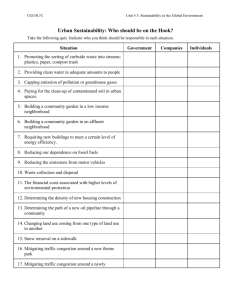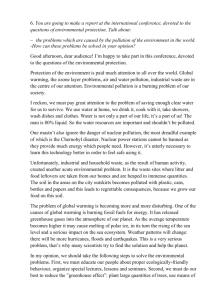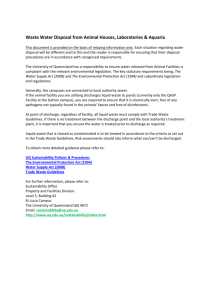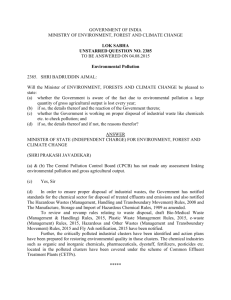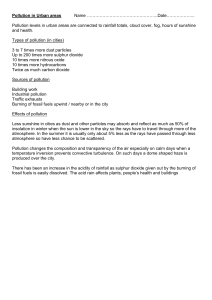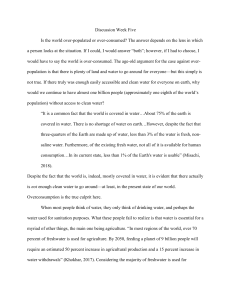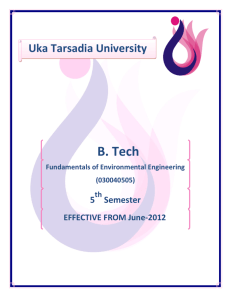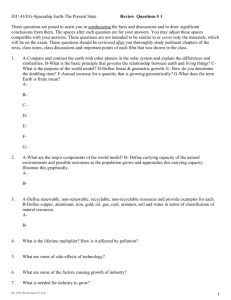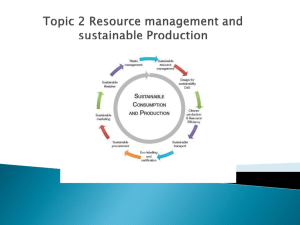Human Impact: Population, Resources, and Sustainability
advertisement
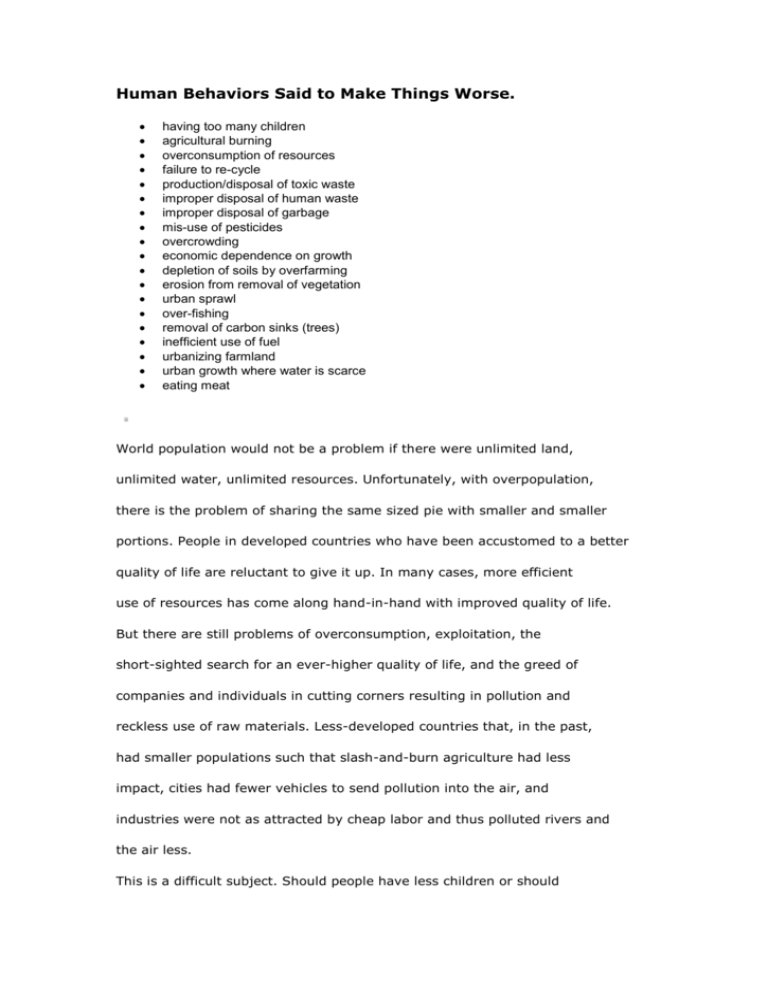
Human Behaviors Said to Make Things Worse. having too many children agricultural burning overconsumption of resources failure to re-cycle production/disposal of toxic waste improper disposal of human waste improper disposal of garbage mis-use of pesticides overcrowding economic dependence on growth depletion of soils by overfarming erosion from removal of vegetation urban sprawl over-fishing removal of carbon sinks (trees) inefficient use of fuel urbanizing farmland urban growth where water is scarce eating meat World population would not be a problem if there were unlimited land, unlimited water, unlimited resources. Unfortunately, with overpopulation, there is the problem of sharing the same sized pie with smaller and smaller portions. People in developed countries who have been accustomed to a better quality of life are reluctant to give it up. In many cases, more efficient use of resources has come along hand-in-hand with improved quality of life. But there are still problems of overconsumption, exploitation, the short-sighted search for an ever-higher quality of life, and the greed of companies and individuals in cutting corners resulting in pollution and reckless use of raw materials. Less-developed countries that, in the past, had smaller populations such that slash-and-burn agriculture had less impact, cities had fewer vehicles to send pollution into the air, and industries were not as attracted by cheap labor and thus polluted rivers and the air less. This is a difficult subject. Should people have less children or should people use less resources, pollute less? Or both? Should one problem have priority over the other? The world population has doubled in the last forty years. Who has contributed the most to overconsumption and pollution? The more developed nations with a relatively stable population growth, but who use 5-50 times the resources of the poor, or the less developed nations whose populations will double again in 30 years, who will run out of food and water first, and whose pollution due to agricultural burning, coal burning, lack of emission controls, mis-use of pesticides, and toxic waste from under-regulated industries, will only worsen with the increase of population? And then there is the question of ownership and distribution of resources, do the rich exploit the poor, and to what extent? As I said, this is a difficult subject. There is a delicate balance here: we want the poor countries to improve their economic situation and to improve the family's quality of life. This has been know to lower the birth rate. But we want the rich countries to consume less, perhaps lower the quality of life. We need to balance the quality of life between the rich and the poor, at the same time, hoping to balance the family size between the rich and the poor. Sustainability and Population Population is not of concern if there are enough resources to go around. Important resources like water of suitable quality for growing crops, drinking, cooking, and cleanliness, fertile soil for growing food and trees, and fuel for warmth and cooking. Depletion of important resources leads to poverty, disease, malnutrion and often death. Impoverished people are usually forced to destroy their environment in order to survive. Sustainability is the practice of conservation that will allow people to have enough resources through their life and the lives of future generations. Sustainability is possible by conserving energy, materials, resources, by new technologies, and by ensuring that the number of births is low enough so that there is enough to go around.
